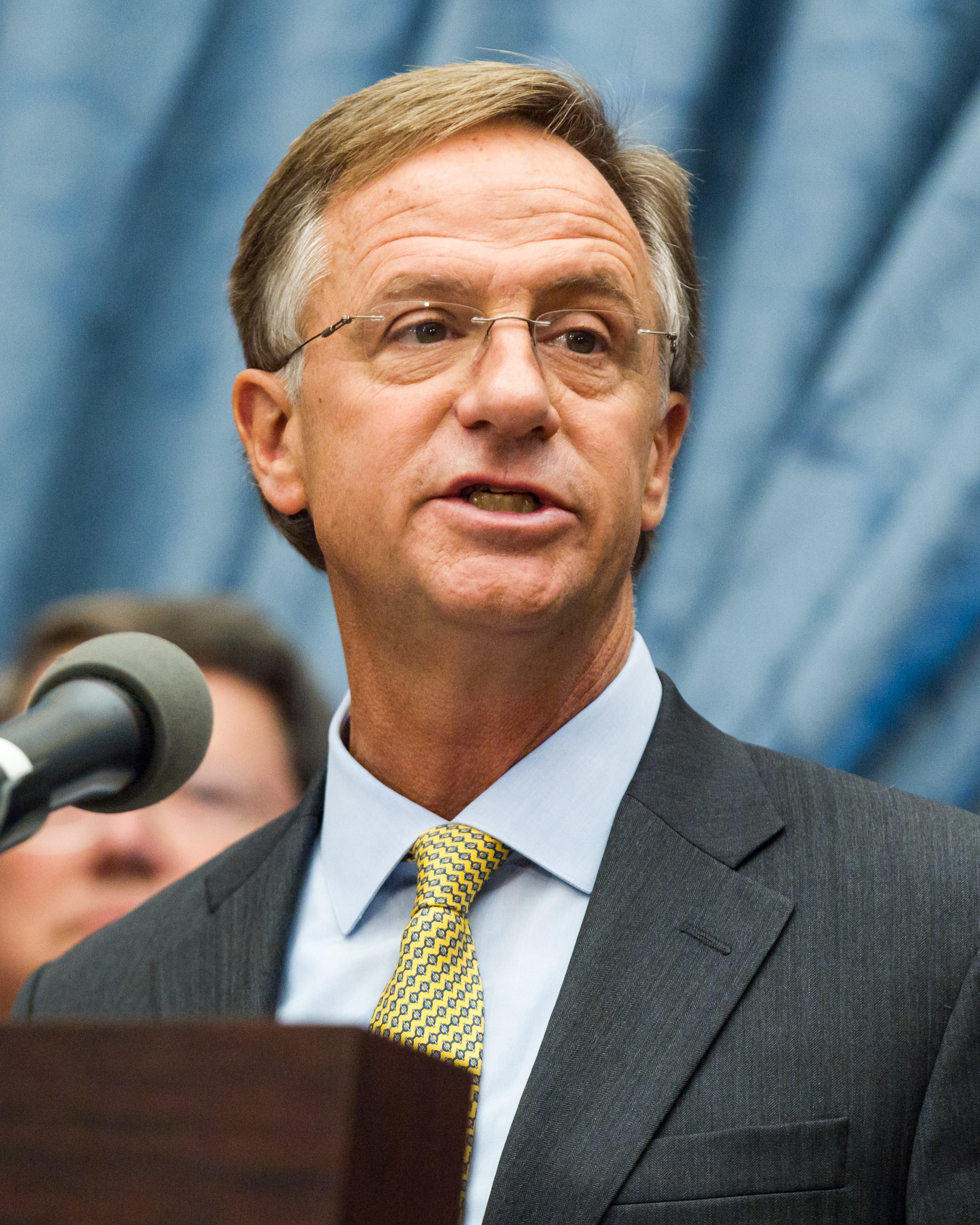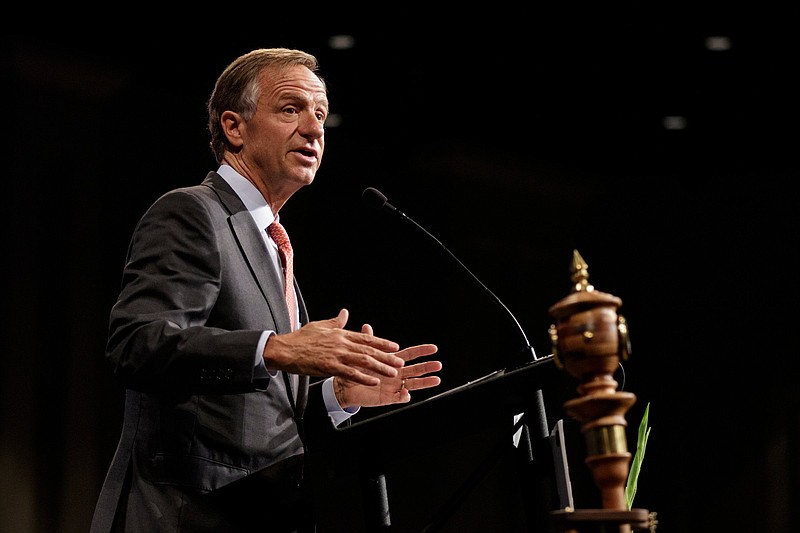NASHVILLE - After having "wrestled" with whether to run for U.S. Senate for six months, former Republican Tennessee Gov. Bill Haslam said Thursday he finally reached the "conclusion that it is not my calling for the next period of my life."
The popular two-term former governor and billionaire announced his decision early Thursday.
One political observer said it "completely recasts" the race on the Republican side to succeed Republican U.S. Sen. Lamar Alexander, who announced in January he would not seek a fourth term.
Wryly noting the time it took to arrive at what he would do, Haslam, 60, who served as Knoxville mayor before getting elected in 2010, said in a letter to "Fellow Tennesseans" that "the truth is, this [Senate deliberation] has been the hardest vocational decision in my life.
"As I have said before, I think public service is one of the highest callings that anyone can have on their life," he wrote. "And there is no question that this is an important time in our nation's history. It does matter who we elect to such critical positions."
His decision did not trigger an immediate political stampede among Republicans. In fact, U.S. Rep. Mark Green of Clarksville, a freshman and former state senator, immediately took himself out of consideration.
But another congressman, Republican David Kustoff of Memphis, said he is getting encouragement from across the state to run and plans to continue talking with people.
Another name popping up as a possibility is Bill Hagerty, currently U.S. ambassador to Japan who, unlike Haslam, is said to get along quite well with President Donald Trump.
Nashville trauma surgeon Manny Sethi last month announced his bid for the Republican Senate nomination.
Alexander - a former governor Haslam had described as one of his political mentors, along with the late U.S. Senate Majority Leader Howard Baker - said in a statement Haslam "would be a terrific United States senator, but he has served Tennessee well and unselfishly for 15 years as governor and as mayor of Knoxville.
"I can completely understand his desire to take a different direction with his life," Alexander said.
With his great personal wealth, political network and continued popularity, Haslam was seen as a tough foe for Republicans entering the Senate race, despite the former governor's previous criticisms of Trump during the 2016 presidential campaign and acknowledgement he had not voted for him in the general election.
Republicans who have spoken with Haslam say he didn't really seem to have the requisite "fire in the belly" to serve in the Senate, seeing himself as more of an executive than a legislator.
 Republican Gov. Bill Haslam speaks at a press conference at the state Capitol in Nashville, Tenn., on Tuesday, Dec. 1, 2015, about his plan to grant more autonomy to six public universities in the Tennessee Board of Regents system. Under his proposal, each school would get local boards with power to decide budgets, tuition and leadership matters. (AP Photo/Erik Schelzig)
Republican Gov. Bill Haslam speaks at a press conference at the state Capitol in Nashville, Tenn., on Tuesday, Dec. 1, 2015, about his plan to grant more autonomy to six public universities in the Tennessee Board of Regents system. Under his proposal, each school would get local boards with power to decide budgets, tuition and leadership matters. (AP Photo/Erik Schelzig)And it takes more than a single six-year term to become effective in the Senate, observers noted. Haslam, who turns 61 next month, would be in his early 70s if he served two terms. And he has plenty of other ways to make an impact on issues and policies he cares about as well, friends and allies said.
"He just doesn't have this burning desire to be a candidate or a senator," said political strategist Tom Ingram, who has advised Haslam and helped get most statewide GOP candidates elected in Tennessee.
Ingram, who spoke earlier in the week before Haslam's announcement, said the former governor "feels this obligation about public service. And he's struggling. And he's got all kinds of other options, and he's just struggling in the middle of all that."
Dr. John Geer, a political professor at Vanderbilt University and veteran Tennessee political observer, said Haslam's decision "completely recasts the race" because his path to victory would have been fairly clear had he run.
But Geer also noted that "one of the things required to run for an office like that is fire in the belly." Haslam is fundamentally an executive type, Geer noted. "And I think he realizes that there are other people who would be good senators like Hagerty."
Hagerty, a successful businessman, formerly served as Haslam's economic development chief. Whether he runs is unclear. He released a statement simply praising his former boss.
With Alexander leaving, Haslam forgoing a bid to succeed him as well as the decision in 2018 by then-U.S. Sen. Bob Corker of Chattanooga not to seek re-election, Tennessee Republicans' "Howard Baker" wing of politicians willing to reach across the aisle when needed and achieve compromises to get things done "is in real trouble," Geer said.
"I think that was one of the things that gave the governor a lot of pause, because it really could be in a weakened state," Geer said.
Contact Andy Sher at asher@timesfreepress.com or 615-255-0550. Follow him on Twitter @AndySher1.

